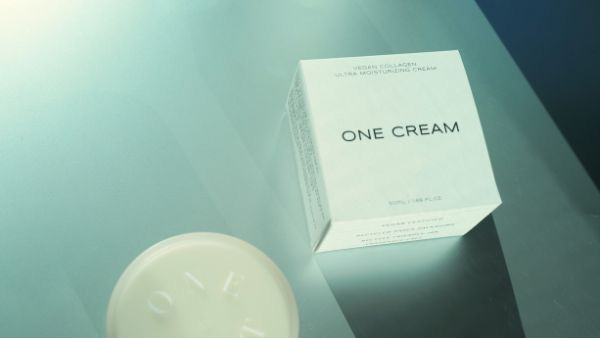Vitamin C is a water-soluble, essential vitamin that has many roles within the body. We can commonly find vitamin C in many fruits and vegetables. Moreover, it is linked to various health benefits.
Studies have shown that consuming ascorbic acid can lead to a reduced risk of chronic diseases, help manage high blood pressure, lower risks of heart diseases, prevent iron deficiency, boosts immunity, protects against memory loss in advanced ages, and many more.
Vitamin C, rich in bioactive compounds, is also an antioxidant that can protect our body from oxidative damages induced by free radicals.
The USDA Dietary Guidelines recommend a daily intake of 50 – 90 mg of the vitamin.
Here, we have our top picks for healthy, vitamin C-rich foods:
1. Kakadu Plums
In 1982, the Human Nutrition Unit and Commonwealth Institute of Sydney Health discovered a wild fruit that contains fifty times as much as that present in oranges. Therefore, it might be the richest natural source of the vitamin in the whole world.
In 3 samples of these kakadu plums, researchers found ascorbic acid contents to be 3150, 2850, and 2300 mg per 100 g of this edible fruit. This is much higher compared to citrus fruits which are found to contain only around 50 mg per 100g.
Aside from that, it is also rich in potassium, vitamin E, and antioxidants lutein that is beneficial for eye health.
2. Acerola Cherries
Acerola juice is also one of the richest natural sources of vitamin C, with 50 to 100 times the ascorbic acid content of orange juice. One-half cup or 49 g red acerola cherries can contain 922 mg.
In addition, one study in the Journal of Pediatrics was conducted on infants that are given acerola juice as their only source of ascorbic acid in the diet. Results show that vitamin levels in the infants’ blood were all above average, with all infants showing average or better growth and development for their weight and age.
3. Rose Hips
Rose hips are accessory fruits of the rose plant. Fresh rose hips have a very high concentration of vitamin C, with around 1380 – 2580 mg of ascorbic acid per 100 g of the fruit. However, processing and drying of these fruits may lead to a decline in vitamin C levels. Storing it during long periods of time can also reduce the amount of vitamin available.
However, studies show that there is great variability of vitamin content in rose hips depending on the altitude.
4. Chili Peppers
Chili pepper is a major spice crop you can easily find anywhere in the world. It contains a large amount of ascorbic acid, which is highly dependent on the stages of the ripening of the fruit.
One study reveals that there is a difference in ascorbic acid content between green to red chili peppers. For each 100g, green chili pepper can contain 242.5 mg of vitamin C, while red chili pepper can contain 143.7 mg.
5. Guavas
This tropical fruit is a great source of vitamin C, with every 100g of the fruit containing 228mg or 254% DV. It is also high in lycopene, which is an antioxidant compound commonly found in tomatoes.
6. Kiwifruit
These Australia and New Zealand-based fruits contain a good amount of vitamin C. Every 100g of Kiwi can contain 93mg or 103% DV.
A study on 14 men with vitamin C deficiency found that after eating two kiwis daily for 4 weeks, their white blood cell activity raises by 20%. It also raised their blood levels of the vitamin in a week by 304%.
Vitamin C in Our Diet
Keep in mind that cooking these food sources may reduce vitamin content. Other methods of food processing such as steaming and microwaving is a better alternative to retain more of these vitamins. Eating fruits and vegetables raw is the best choice to maximize the vitamin content.
The Mediterranean diet, abundant in citrus juices, can provide you with a rich vitamin C food source.
If you are interested in improving the vitamin C content in your diet, we have just the right solution for you! Eatology offers highly nutritive meal plans that are rich in various minerals and vitamins (including vitamin C!). All of our meal plans contain a vitamin C contents higher than the recommended daily intake, at 225mg per day on average. We also have a healthy Mediterranean diet choice for you!
Another article we think might interest you:
4 Top Healthy Foods That Are High in Vitamin D!
Reference:
1. Martí, N., Mena, P., Cánovas, J., Micol, V. and Saura, D., 2009. Vitamin C and the Role of Citrus Juices as Functional Food. Natural Product Communications, 4(5), pp.1934578X0900400.
2. Brand, J., Cherikoff, V., Lee, A. and Truswell, A., 1982. AN OUTSTANDING FOOD SOURCE OF VITAMIN C. The Lancet, 320(8303), p.873.
3. Clein, N., 1956. Acerola juice—The richest known source of Vitamin C. The Journal of Pediatrics, 48(2), pp.140-145.
4. Pyke, M. and Melville, R., 1942. Vitamin C in rose hips. Biochemical Journal, 36(3-4), pp.336-339.
5. Bozonet, S., Carr, A., Pullar, J. and Vissers, M., 2015. Enhanced Human Neutrophil Vitamin C Status, Chemotaxis and Oxidant Generation Following Dietary Supplementation with Vitamin C-Rich SunGold Kiwifruit. Nutrients, 7(4), pp.2574-2588.


